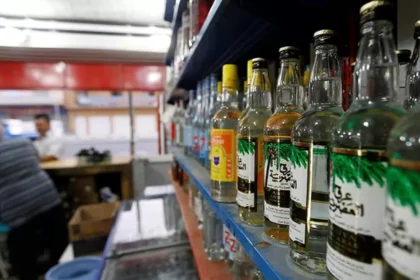Singapore made headlines on Friday as it executed a woman for drug trafficking, marking the country’s first execution in nearly two decades. Despite international calls for the cessation of capital punishment for drug-related crimes, the country carried out the sentence against Saridewi Djamani, aged 45.
In 2018, she was sentenced to death for trafficking nearly 31 grams (1.09 ounces) of diamorphine, an amount that authorities claimed could have supplied 370 abusers for a week, as reported by the Central Narcotics Bureau.
Subsequently, Singapore carried out the execution of Mohammed Aziz Hussain, a 56-year-old Singaporean man, for trafficking approximately 50 grams (1.75 ounces) of heroin. Surprisingly, yet another execution is scheduled for the upcoming week.
Singapore has rigid laws mandating capital punishment for individuals convicted of trafficking over 500 grams (17.64 ounces) of cannabis and 15 grams (0.53 ounces) of heroin. While the inmates were given due process, including the option to appeal their conviction and punishment, and seek a presidential pardon, human rights groups, activists, and the United Nations continue to call for an end to executions for drug offenses. They argue that capital punishment is ineffective as a deterrent.
Since resuming hangings in March 2022, Singapore has executed a total of 15 people, averaging one execution per month, according to human rights organizations. The country’s reputation as the second-best tourist attraction in Southeast Asia contrasts sharply with its strict capital punishment policy.
The Singapore Transformative Justice Collective, a group advocating for the abolishment of capital punishment, revealed that a new execution notice has been issued to an ethnic Malay citizen convicted in 2019 for trafficking around 50 grams of heroin. The group argues that the individual believed he was delivering contraband cigarettes and didn’t verify the contents of the bag. Despite being considered a courier, he faces the mandatory death penalty on August 3, becoming the fifth execution this year alone.
The collective strongly condemns what they describe as the state’s “bloodthirsty streak” and demands an immediate moratorium on the use of the death penalty. Singapore’s stringent policy primarily targets low-level traffickers and couriers, often recruited from marginalized communities. This approach stands in contrast to neighboring countries like Thailand, which has legalized cannabis, and Malaysia, which has abolished the death penalty for serious crimes. The debate on the efficacy and ethics of Singapore’s capital punishment policy continues to provoke international discussions and calls for reform.




